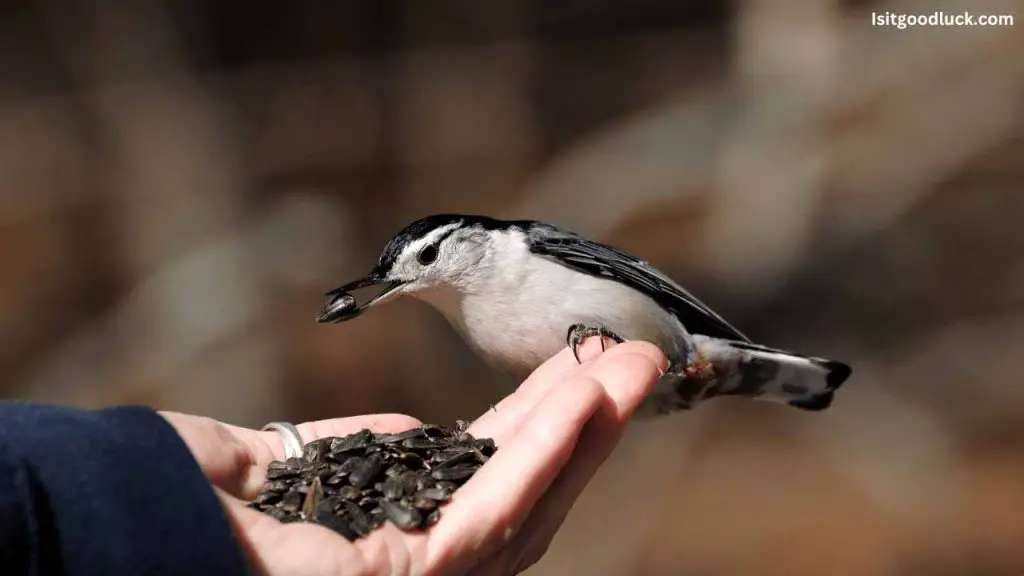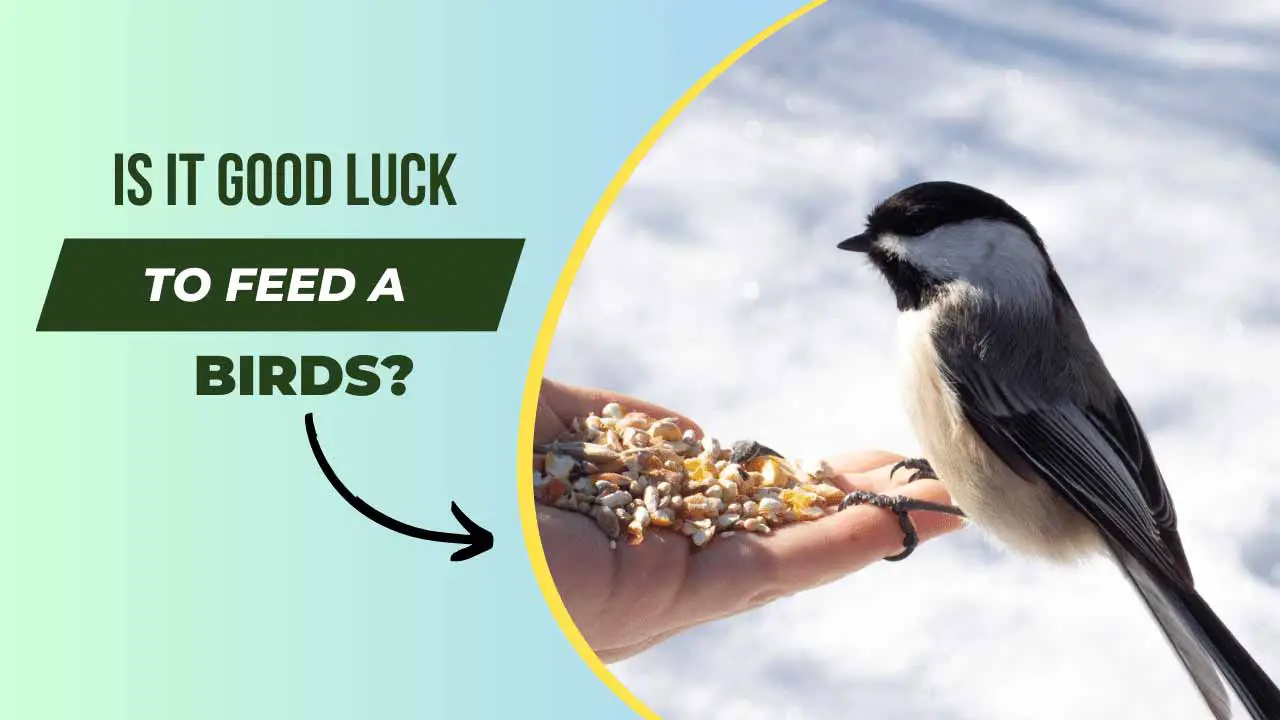Birds, enchanting creatures that symbolize freedom, have been associated with various cultures worldwide, often linked with good luck and prosperity.
In some societies, a belief persists that feeding birds could bring good fortune, protection, and even divine blessings to the feeder.
This article explores the rich history of bird-related superstitions, the spiritual significance of feeding birds, its practical benefits, and whether it genuinely brings good luck.
Contents
The History of Bird Superstitions:
The belief that birds are harbingers of good luck traces back to ancient civilizations. They were perceived as divine messengers, often bridging the gap between the celestial and the terrestrial.
Consequently, their actions were carefully observed and interpreted, with feeding birds associated with attracting good luck or appeasing divine entities.
For instance, in Ancient Rome, Augurs, religious officials, interpreted the gods’ will by studying birds’ flight patterns. Conversely, Celtic cultures believed in the sacred power of the Raven, considering its sighting or feeding to be a fortunate event.
Such beliefs highlight the deep-seated symbolic connection between feeding birds and attracting good fortune across different cultures.
The Spiritual Significance of Feeding Birds:
Feeding birds transcends the boundary of a simple act of kindness in several cultures, ascending into a spiritual realm. It is often associated with divine blessings, providing a spiritual connection to the natural world.
In Hinduism, birds are considered emissaries of the god Shani, who represents justice and fortune. Thus, feeding birds is seen as pleasing Shani, inviting good luck. Similarly, in Buddhism, feeding birds equates to accumulating merit, which can lead to a better rebirth.
These religious underpinnings instill a spiritual dimension into feeding birds, transforming it into a virtuous act promising spiritual benefits and good fortune.
Also read: Is It Good Luck to Have a Bird’s Nest?
The Practical Benefits of Feeding Birds:
Beyond the spiritual realm, feeding birds also yield practical benefits, contributing to the natural ecosystem’s health. Birds are:
- Nature’s pest control agents.
- Devouring insects and pests that harm crops and gardens.
- Indirectly assisting human societies.
Furthermore, bird feeding can attract wildlife to your surroundings, enhancing biodiversity. Birds attract insects, inviting other fauna such as bats, frogs, and snakes, fostering a balanced and rich ecosystem.

Is It Good Luck to Feed Birds?
The attribution of good luck to feeding birds largely depends on personal belief. Still, considering the spiritual and practical benefits, it’s clear that this activity fosters a connection with nature, supports biodiversity, and potentially attracts good fortune.
However, certain superstitions associate different types of birds with varied beliefs. For example, the swallow symbolizes love, loyalty, and peace in several cultures, while owls often symbolize wisdom and mystery. Feeding these birds is often viewed positively, linked to the attributes they represent.
Feeding birds is not just restricted to scattering bread or grains in your yard. You can provide a balanced diet to them through specialized bird feeders or bird tables with seeds, nuts, and fat balls.
Some people also build birdhouses or birdbaths, providing shelter and water sources, creating a hospitable environment for these winged visitors.
Challenges and Ethics of Bird Feeding:
As idyllic as bird feeding sounds, it does present challenges. Attracting too many birds can lead to noise, droppings, and the potential spread of diseases. Therefore, it’s important to maintain cleanliness and hygiene around feeding areas.
Ethically, while feeding birds support them, especially during harsh winters, ensuring it doesn’t lead to dependency is vital. Appropriate food types are also crucial, as some human foods can harm birds.
Conclusion:
In conclusion, there isn’t a definitive answer to whether feeding birds bring good luck. However, the act holds significant spiritual weight in various cultures, offers practical benefits, and, most importantly, allows us to observe, appreciate, and support our feathery friends.
To those seeking a deeper connection with nature or simply wishing to invite a sense of peace and joy into their lives, extending a hand of kindness towards birds might be the luck you need.
Remember to be patient, mindful, and respectful in your interaction with these beautiful creatures, ensuring their welfare alongside your enjoyment.
Also read other articles regarding birds good luck
FAQs
What are some of the common beliefs about specific birds and good luck?
Different cultures associate various species of birds with luck. For example, in Western culture, robins are often considered good luck and seeing one is believed to be a positive omen. In Chinese culture, the crane is a symbol of longevity and prosperity. In Native American culture, the eagle is considered a sacred messenger, bringing guidance and protection.
What type of food is best to feed birds?
The best food for birds are seeds, nuts, cracked corn, and berries. Many pet shops and garden centers sell specialized bird food. It’s essential to avoid feeding birds harmful foods like chocolate, avocados, and caffeine, as these can be toxic. Also, providing fresh water is just as important.
Are there any laws against feeding birds?
Laws vary by location, and in some cities or regions, it’s illegal to feed wild birds due to concerns about disease spread, pests, and creating dependency. Always check local regulations before setting up a bird feeding station.
Can feeding birds lead to bird dependency on humans?
If birds are fed regularly and dependably, they may rely on these feedings as a primary food source. However, most birds maintain a variety of food sources and are opportunistic feeders, so this risk is relatively low. Feeding birds intermittently rather than continuously is a good practice to prevent dependency.
What time of day is best for feeding birds?
Birds are generally most active in the early morning and late afternoon. These are typically the best times to feed birds. However, birds will visit feeders at any time of day, so feed can be left out for them to find whenever they arrive.





